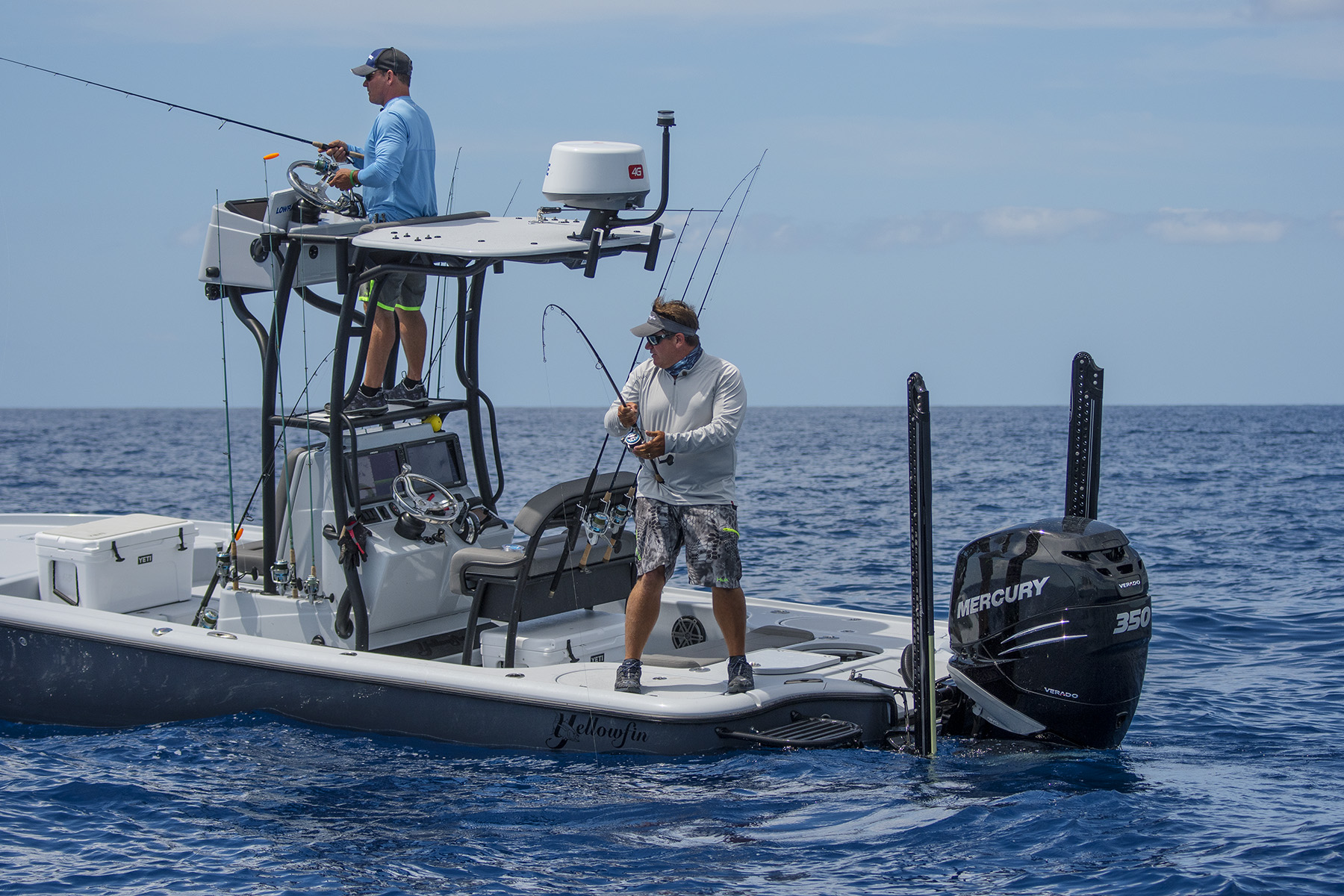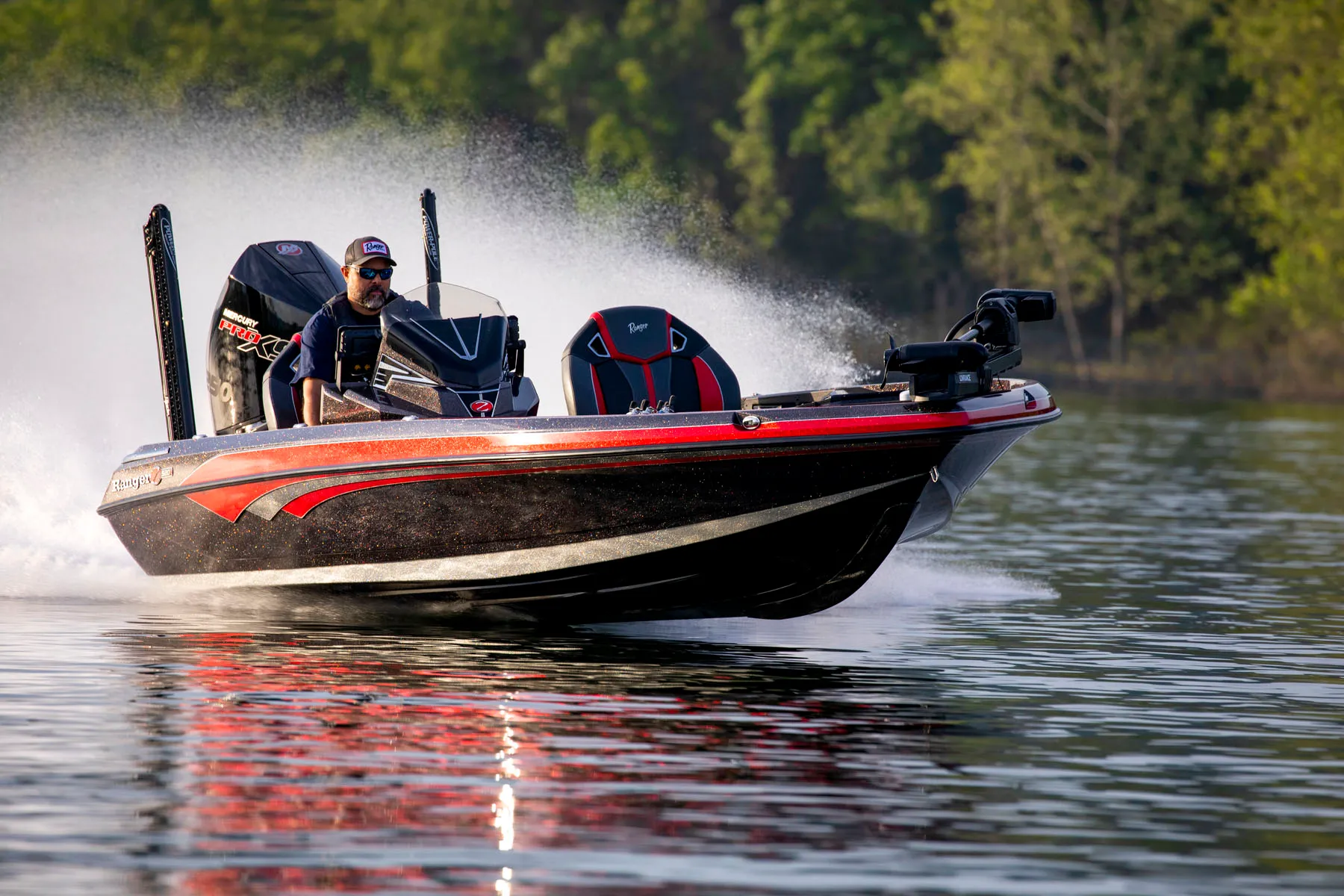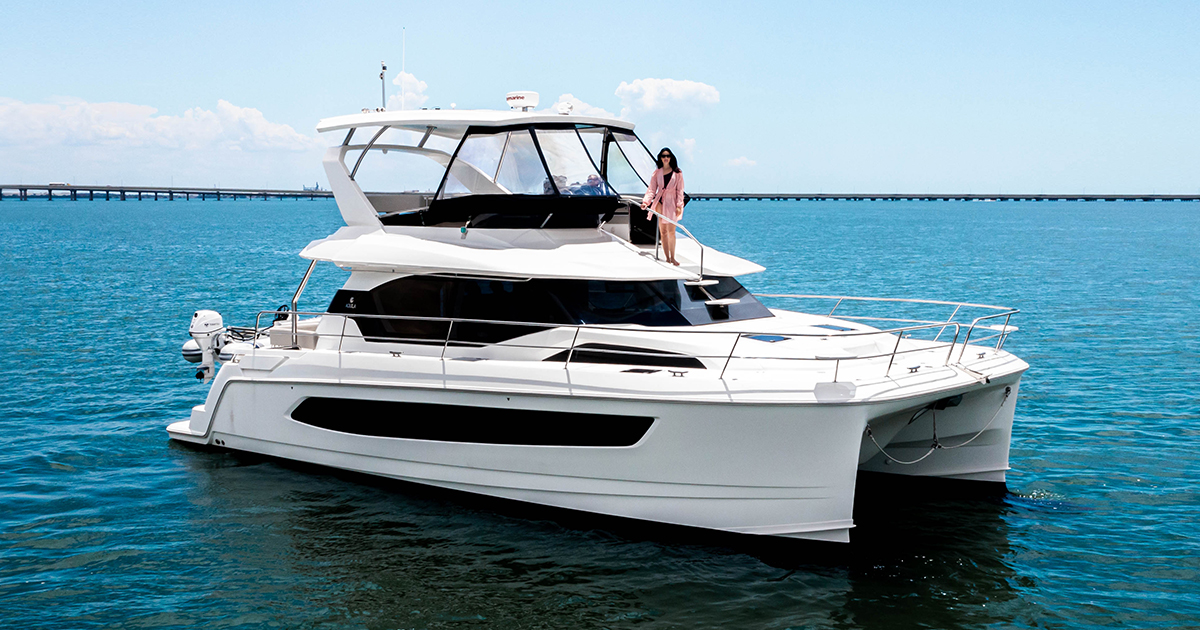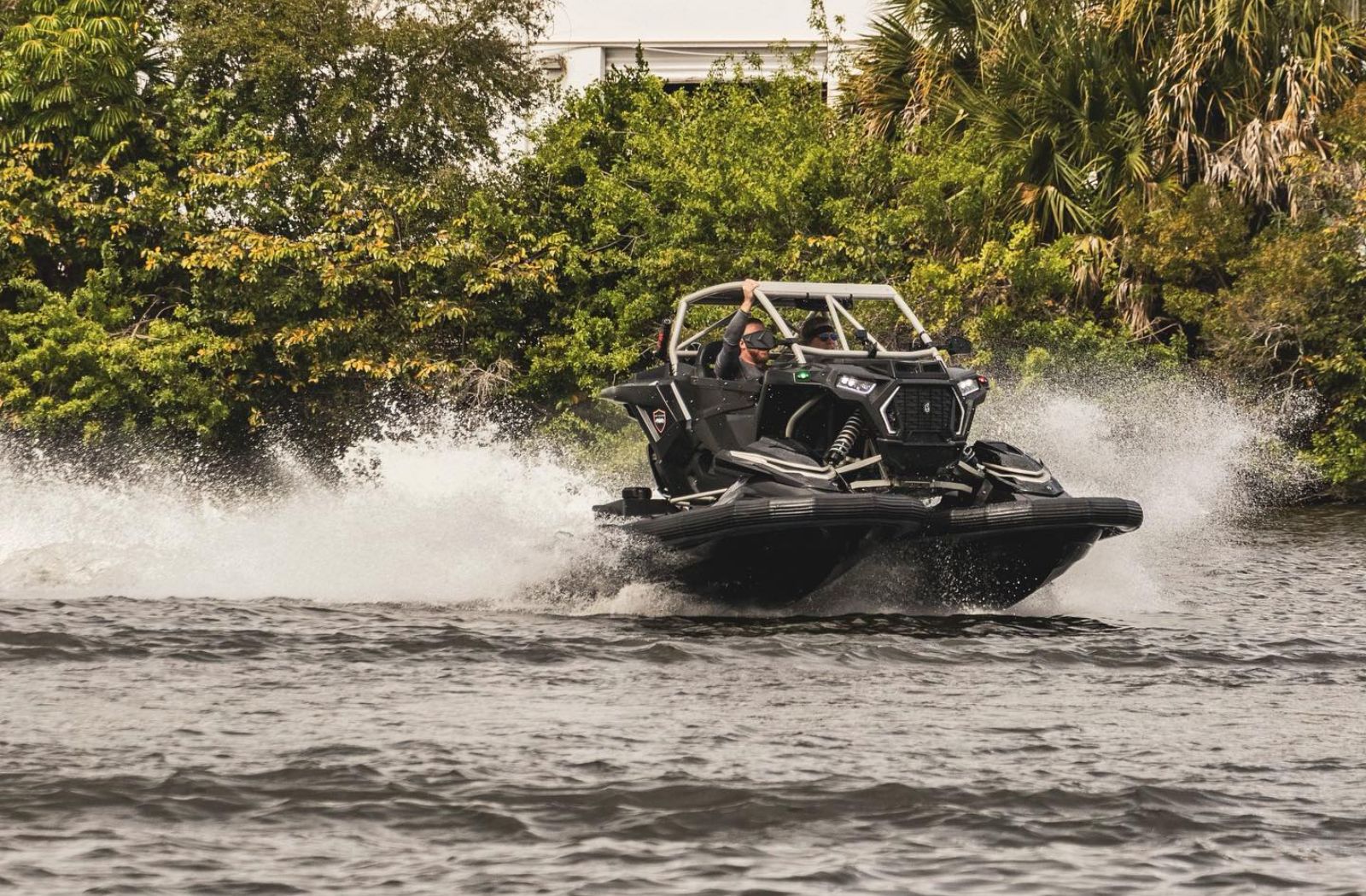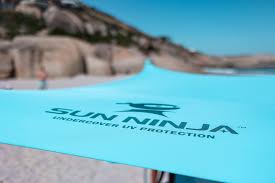What is the First Action Required of a Boat Operator in a Boating Accident? Essential Steps Explained
Boating accidents can occur unexpectedly and may result in injury, damage to property, or even loss of life. When involved in such an incident, it is crucial for the boat operator to know the essential steps to take and fulfill their legal responsibilities. The first action required of a boat operator in a boating accident is to immediately stop their vessel at the scene of the accident. They must also ensure the safety of all individuals involved and offer assistance if possible without endangering their own safety or that of their passengers.
Upon stopping the vessel and ensuring the safety of those involved, the boat operator should provide their name, address, and vessel identification to any injured parties and the owners of damaged property. It is also crucial for the operator to follow appropriate incident handling procedures, report the accident to relevant authorities when necessary, and gather any useful evidence at the scene for possible legal matters.

Key Takeaways
- Boat operators must stop immediately at the scene of the accident and prioritize the safety of those involved
- Providing personal and vessel information to injured parties and property owners is a legal requirement
- Reporting the accident to authorities and gathering evidence may be necessary depending on the severity of the incident
Detection of a Boating Accident
Identifying Common Causes
Boating accidents can occur for various reasons, ranging from operator error and mechanical failure to weather conditions or collision with other vessels. It is essential for boat operators to be aware of these common causes, as recognizing them can help in taking proactive measures to prevent accidents. Some potential causes include:
- Operator inattention or distraction
- Excessive speed
- Inexperience or lack of proper training
- Alcohol or drug use
- Mechanical failure or equipment malfunction
- Adverse weather conditions such as high winds, fog, or storms
- Obstruction by buoys, floating debris, or underwater hazards

Recognizing Immediate Danger
When a boating accident occurs, the first action required of the boat operator is to assess the situation and recognize any immediate dangers. This can include checking for injuries, fire, fuel leaks, or damages to the boat that might pose a safety risk. Once immediate danger is recognized, the boat operator should address the situation accordingly by prioritizing safety and providing medical care if necessary.
For instance, if a boat operator identifies a potential fire risk due to a fuel leak, they should act swiftly to shut off the fuel supply and utilize a fire extinguisher to put out any flames. Additionally, they must ensure that all passengers on the boat are wearing personal flotation devices (PFDs) at all times, as this can help prevent drowning in case the accident results in capsizing or sinking.
Moreover, the boat operator should maintain a clear and neutral tone when communicating with passengers and other parties involved in the accident. Instructing passengers to remain calm and providing reassurance is crucial for ensuring that everyone aboard the vessel remains composed during the emergency situation. This can also help prevent panic, which may worsen the situation.
By identifying common causes of boating accidents and recognizing immediate danger, boat operators can take decisive action to ensure the safety of their passengers and reduce the risk of further damages or injuries.

Incident Handling Procedures
Accident Damage Evaluation
When a boat operator is involved in a boating accident, the first action required is to evaluate the extent of the damage. This includes assessing the condition of the vessel, passengers, and surrounding environment. The operator must quickly determine whether their boat is still functional or if it poses an immediate risk to the safety of the passengers and others in the area.
In cases where the vessel is severely damaged, the boat operator should prioritize the well-being of those on board. This entails ensuring all passengers are accounted for and providing assistance to anyone injured or in danger as a result of the accident. It's crucial for the operator to remain calm and composed while carrying out these tasks.
Safety Measures
After evaluating the damage and ensuring the passengers' safety, the boat operator must take necessary steps to prevent further harm or damage. For example, if the boat is sinking or at risk of sinking, ensure everyone is wearing life jackets and can safely exit to avoid being trapped inside the vessel.
In situations where fuel or chemicals might be leaking from the boat, the operator should ensure that all passengers and crew avoid any potential hazards. This may include moving away from the affected area or sealing off any leaking containers.
Once the immediate dangers have been addressed and everyone involved is safe, the boat operator is obligated to exchange information with any injured parties and the owners of damaged property. They must provide their name, address, and vessel identification details.
Moreover, it's crucial not to leave the scene of the accident. The boat operator should remain in the area until it is safe to depart and, if necessary, assist in the ongoing investigations of the incident by providing accurate and detailed information to the relevant authorities.
Handling a boating accident can be challenging, but by following these procedures and prioritizing passenger safety, a boat operator can help to minimize the risk of further harm and ensure a responsible approach to addressing the incident.
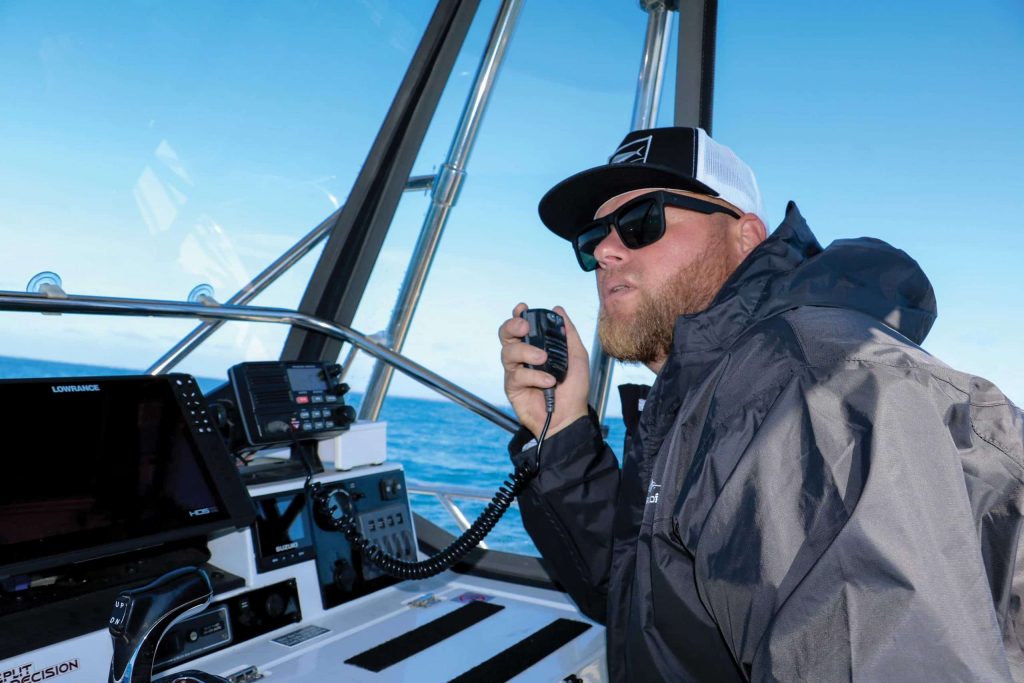
Legal Obligations and Reporting
When a boat operator is involved in a boating accident, there are certain legal obligations they must adhere to in order to prioritize the safety of the passengers and comply with the laws. The first action required of a boat operator in such a situation is to stop the boat immediately and assess the situation, prioritizing the safety of everyone on board. They should provide any necessary medical care to injured persons if it is safe to do so 1.
Boat operators are required to exchange information with any other parties involved in the accident. This includes providing their name, address, and vessel identification to anyone injured or to the owner of any property damaged by the accident 2. This step is crucial in ensuring that all involved parties are properly informed and can seek necessary compensation later on.
Reporting the accident to the relevant authorities is another essential responsibility of the boat operator. The operator or the owner of the vessel must complete and submit a written boating accident report if any of the following conditions are met:
- A person dies or disappears from the vessel under circumstances that indicate death or injury
- A person is injured and requires medical treatment beyond first aid
- There is substantial damage to property3
In some cases, it might be necessary to contact the police to report the accident. This depends on the severity of the accident and local regulations. It is important for the boat operator to be aware of these regulations in order to comply with the law and ensure that the right procedures are followed.
Overall, when a boat operator is involved in a boating accident, their primary focus should be on the safety and well-being of the passengers and themselves. Along with this, it's important for them to fulfill their legal obligations including providing their personal information, attending to injured persons, and reporting the accident to the relevant authorities.
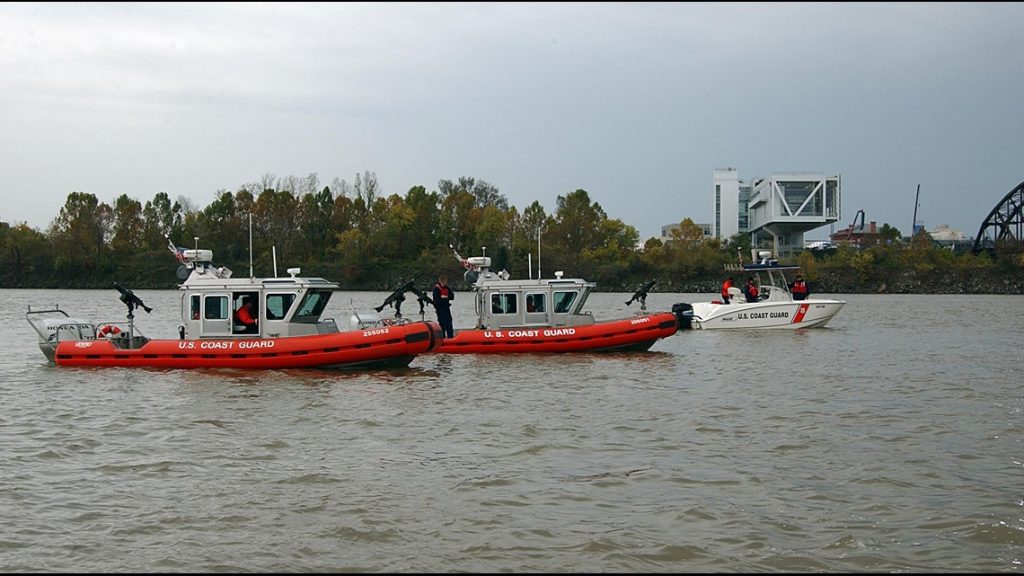
Emergency Assistance
When a boat operator is involved in an accident, the first action required is to provide immediate assistance to the injured, if it is safe to do so. Following a collision or other incident, the priority should be to assess the situation and ensure that any injured persons receive proper care. This may involve administering first aid or requesting medical help.
A well-prepared boat operator should have a first aid kit on board in order to address minor injuries promptly. It is essential that the operator and passengers know the location of this kit and have basic knowledge of first aid procedures, which may be vital in providing initial care to the injured.
One of the essential tools for facilitating assistance and communication during an emergency is a VHF radio. Operators should have one on board and know how to use it correctly. In the event of an accident, a VHF radio can be used to call for help, coordinate assistance with other nearby boats, or communicate with local authorities.
The primary responsibility of the boat operator is to render assistance to any person injured or in danger due to the accident, without jeopardizing their own safety or that of their passengers. This can include helping injured persons back onto the boat, providing essential first aid, and ensuring everyone on board is accounted for and safe.
In some cases, a boat operator may need to assist other vessels or property damaged in the accident. This may involve exchanging necessary information, such as name, address, and vessel identification, with the injured party and the owner of the damaged property.
By acting responsibly and efficiently, a boat operator can provide crucial help during an emergency, potentially saving lives and reducing harm. It is essential that operators are well-trained, knowledgeable, and prepared to handle emergencies while out on the water.
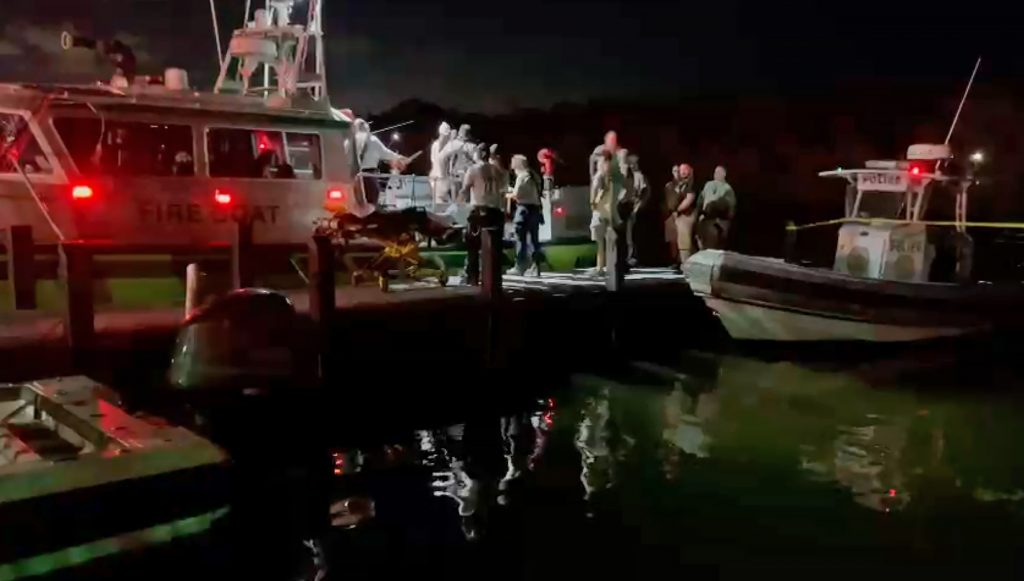
Securing the Scene
When a boat operator is involved in a boating accident, the first action required is to secure the scene. This begins with ensuring the safety of everyone involved and addressing any immediate dangers posed by the accident.
One of the critical steps in securing the scene is anchoring the vessel. The boat operator should drop the anchor to prevent further movement and potential damage. This becomes even more crucial in rough water conditions, where the boat may drift and collide with other vessels or stationary objects.
As the boat operator, it is essential to assess the surrounding area for navigation hazards. Pay close attention to the tide, as changing water levels can pose additional challenges in securing the scene and attending to injured individuals.
Additionally, the boat operator should handle navigating around any nearby buoys, markers, or other signs that may dictate specific actions or precautions to take while maneuvering the boat in the accident area.
Lines play a vital role in the process of securing the scene. Boat operators should use the appropriate type and length of lines to attach their vessel to nearby stationary objects, such as docks, piers, or other boats. In situations where the tide is changing, operators must ensure that enough slack is provided in the lines to accommodate the water level fluctuations.
Another important aspect of securing the scene is communicating with local authorities or nearby vessels to inform them of the accident. This ensures that an appropriate response can be initiated, and other vessels in the vicinity can navigate cautiously to prevent further incidents.
In conclusion, securing the scene following a boating accident involves focusing on safety, navigation, anchoring, managing tide and rough water conditions, and efficiently using lines. Boat operators must approach the situation with a confident, knowledgeable, and clear mindset, prioritizing the well-being of everyone involved.

Evidence Collection
In the aftermath of a boating accident, it is essential for the boat operator to prioritize evidence collection. This process plays a crucial role in determining the cause of the accident and establishing responsibility. The ** confident, knowledgeable, neutral, and clear** approach in evidence collection helps ensure accuracy and comprehensiveness.
One of the first steps in evidence collection is gathering information from all parties involved in the accident. This includes obtaining the names, addresses, and vessel identification details of other operators, passengers, and any witnesses who observed the incident. The boat operator should also exchange information with the injured persons and the owners of damaged property.
Proper documentation of the accident scene is crucial. Photographs and videos of the damaged vessels, debris, water conditions, and any other relevant elements can provide valuable visual evidence. These images should capture various angles and distances to give a comprehensive perspective of the accident scene.
In addition to photographs and videos, the boat operator should compile a detailed written account of the incident. This account should include essential details such as the date, time, and location of the accident, as well as weather and water conditions. Descriptions of each vessel involved, their positions during the accident, and any injuries or property damage sustained should also be documented.
Collecting contact information of witnesses is another vital aspect of evidence collection. Witnesses can provide essential insights into the accident and may offer perspectives that are different from those of the involved parties. Written or recorded statements from witnesses could potentially help to establish the sequence of events or clarify disputed facts.
Finally, ensuring the preservation of physical evidence is critical. Damaged parts or components of the involved vessels should be secured and properly stored. In some cases, it may be necessary to enlist the help of marine surveyors or accident reconstruction experts to analyze the physical evidence.
In conclusion, evidence collection is a crucial aspect of boat accident investigation. By taking a confident, knowledgeable, neutral, and clear approach, boat operators can facilitate accurate analysis of the incident and contribute to a fair and just resolution.
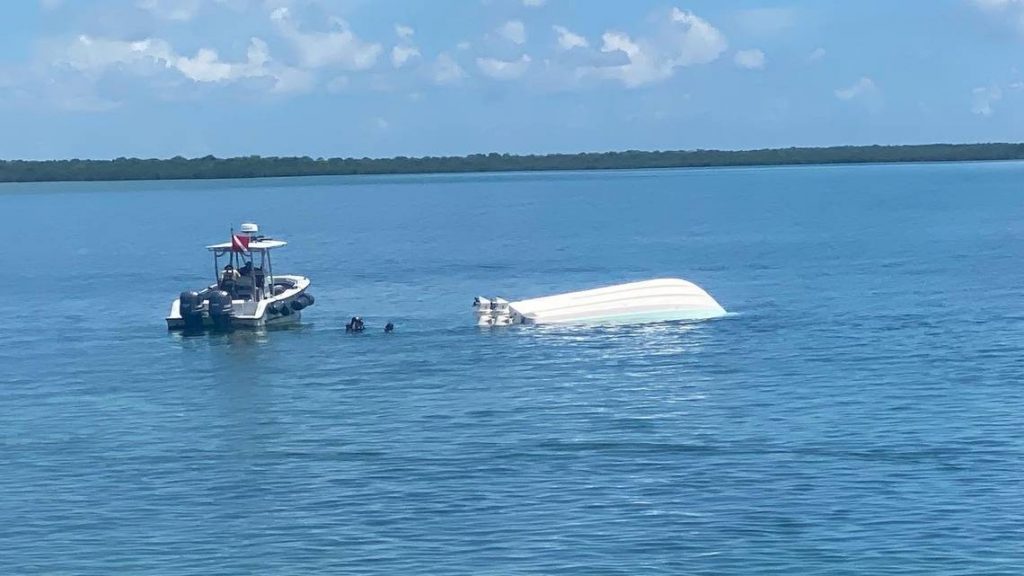
Managing Property Damage
When a boat operator is involved in a boating accident, the first action required is to ensure the safety of all individuals involved. After addressing any immediate safety concerns and injuries, it is essential to manage the property damage resulting from the accident.
Property damage can include damage to the boats, personal belongings of passengers, and other structures such as docks, buoys, or shoreline property. The boat operator involved should document the damage in detail, including taking photographs and noting the specifics of the damaged areas. This information will be useful for both insurance claims and any potential legal proceedings.
When assessing the damage, it is important to determine whether the damage meets the threshold for reporting the accident to the appropriate authorities. In many cases, a Boating Accident Report (BAR) is required if the damage exceeds a certain dollar value, which varies depending on the jurisdiction.
One of the essential components in managing property damage is contacting the insurance providers of all parties involved. This communication should happen as soon as possible after the accident. Insurance companies typically have their procedures and requirements for filing a claim, and prompt reporting will help ensure that the claim is processed efficiently.
For boat operators to receive compensation for the property damage, they need to provide their insurance company with necessary documentation such as photographs, repair estimates, and witness statements. Insurance companies may also require a police report to process the claim.
In some instances, a boat operator may be eligible for compensation from the other party responsible for the accident. A legal advisor can help determine if there is a case for pursuing a claim against the other party, and they can assist in negotiating a settlement or representing the boat operator in court if necessary. Furthermore, it's essential for boat operators to keep records of all expenses related to the accident, including repair costs, medical expenses, and lost wages, as these can be used as evidence when seeking compensation.
Overall, managing property damage after a boating accident requires prompt action, clear documentation, and communication with insurance providers. By following these steps, boat operators can ensure they receive the compensation they are entitled to and efficiently resolve any property damage resulting from the accident.

Coast Guard and Boating Authorities
When a boating accident occurs, it is crucial to prioritize safety, provide medical care, and secure the vessel. In addition to these immediate actions, boat operators must also adhere to specific requirements imposed by the Coast Guard and local boating authorities.
In the United States, the Coast Guard is responsible for enforcing federal laws and regulations related to boating safety. As part of their duties, they confirm that recreational boat operators submit appropriate documentation in the event of an accident. According to the Coast Guard's Federal Requirements for Recreational Boats report, boat operators must file a Boating Accident Report for incidents that result in any of the following:
- Loss of life
- A person disappearing from the vessel under circumstances that indicate death or injury
- Personal injury that requires medical treatment beyond basic first aid
- Property damage exceeding a specific monetary threshold
Boating authorities at the state and local levels also have their own respective regulations and guidelines. Boat operators must comply with these rules and cooperate fully with any investigations or inspections.
When reporting a boating accident, it is essential to gather relevant information, such as the registration or identification numbers of the involved boats, insurance details, and visual documentation. This data will help both the Coast Guard and boating authorities in their investigation and response efforts.
In conclusion, the first action required of a boat operator involved in a boating accident is to prioritize safety, provide medical care, and secure the vessel. Subsequently, they must adhere to the reporting requirements set by the Coast Guard and local boating authorities. Operators have a responsibility to ensure compliance and cooperation, ultimately contributing to a safer boating environment for all involved.

Wearing Protective Gear
One of the first actions a boat operator must take when involved in a boating accident is ensuring that all passengers are wearing appropriate protective gear, such as personal flotation devices (PFDs) and life jackets. Wearing a PFD or life jacket is crucial in preventing injuries and increasing the chances of survival during an accident.
Personal flotation devices are designed to provide buoyancy and keep the wearer afloat in the water. There are different types of PFDs available, each suited for specific water activities and conditions. It is essential for the boat operator to choose the appropriate PFD for the passengers and the situation.
Life jackets, a type of PFD, come in various designs and buoyancy levels. They are made from durable materials and are designed to keep the wearer's head above water even when unconscious. Life jackets are classified into three types: Type I, Type II, and Type III. Type I life jackets offer the best buoyancy and are ideal for offshore use, while Type II and Type III life jackets provide lesser buoyancy and are more suitable for inland and calm waters.
Regular inspection and maintenance of PFDs and life jackets are important to ensure their effectiveness in emergencies. The boat operator should check for any damage, such as tears, broken buckles, and faulty zippers before each use. Inflatable life jackets require periodic inspection to ensure proper inflation.
In conclusion, wearing protective gear like PFDs and life jackets not only increases the chances of survival during a boating accident but also helps minimize injuries. It is the boat operator's responsibility to ensure that all passengers are equipped with the appropriate protective gear and that these devices are in good working condition.
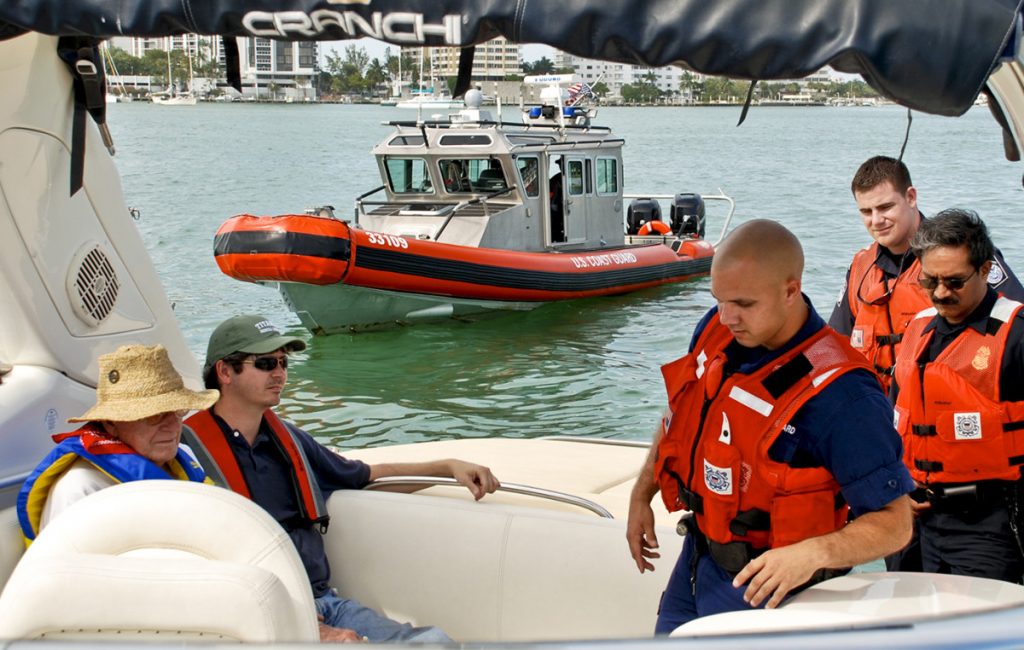
Dealing with the Aftermath
When a boat operator is involved in a boating accident, the first action required is to prioritize safety for everyone involved. The operator must immediately stop their vessel at the scene of the accident and provide assistance to injured persons if it is safe to do so. They should also exchange their name, address, and vessel identification with any injured party and the owner of any damaged property source.
Once the immediate safety concerns have been addressed, it is crucial for the boat operator to understand their rights and responsibilities under maritime law and report the accident to the appropriate authorities. Failure to report a boating accident can result in fines, penalties, and even criminal liability source.
Boat operators should also be aware of potential legal ramifications following an accident. Liability can result from negligence, reckless operation, or violations of navigational regulations. It is essential for boat operators to document the incident accurately and thoroughly. This includes taking photographs of the damage, interviewing witnesses, and collecting contact information from everyone involved.
In situations where the boat operator is unsure of their legal standing or the extent of their liability, consulting with an experienced maritime attorney can provide valuable insight and guidance. A knowledgeable attorney can help navigate the complexities of maritime law, ensuring a fair outcome for all parties involved source.
In conclusion, dealing with the aftermath of a boating accident involves not only addressing immediate safety concerns but also understanding and taking appropriate legal steps. Boat operators must be prepared to handle their responsibilities under maritime law and potentially seek the assistance of an experienced attorney to protect their interests and ensure a fair resolution.

Hunting and Fishing Regulations
Hunting and fishing are popular outdoor activities enjoyed by many people. However, it is crucial for boat operators to understand and follow the hunting and fishing regulations in their area to ensure safety and conservation of wildlife.
One important aspect of hunting from a boat is firearm safety. Boat operators and hunters should always handle firearms responsibly and be aware of their surroundings. This includes pointing the muzzle in a safe direction, unloading firearms when not in use, and securing them properly on the vessel.
Another essential requirement for boat operators engaging in hunting or fishing is securing the appropriate licenses and permits from local authorities. These regulations help to protect wildlife populations and habitats, ensuring the sustainability of these outdoor pastimes for future generations.
When it comes to fishing, boat operators should familiarize themselves with the specific rules regarding the species they are targeting. This may include catch limits (how many fish each angler can retain per day), length and size limits, and legal fishing methods.
Additionally, certain areas may be designated as restricted or closed to hunting and fishing activities to protect endangered species or sensitive habitats. Boat operators should be aware of these restrictions and avoid entering such zones.
It is also crucial for boat operators to adhere to local and federal guidelines on the disposal of fishing waste, such as bait and fish carcasses. Proper disposal practices will help maintain a clean and healthy aquatic environment for both wildlife and other boaters.
By following these hunting and fishing regulations, boat operators ensure a safe and enjoyable experience for all while contributing to the conservation of precious wildlife resources.

Boating and Environmental Responsibility
Boating is an enjoyable recreational activity, but it is crucial to be environmentally responsible while operating a boat. One of the essential steps to ensure environmental safety is managing garbage generated on boats. Boat operators should always store garbage securely and dispose of it properly on land to prevent pollution of water bodies.
In case of a boating accident, the first action required of a boat operator is to provide assistance to any injured or endangered individuals involved. It is important to remain calm and assess the situation before taking any further actions. After stopping the boat immediately and helping the injured persons if it is safe to do so, the operator should provide their name, address, and vessel identification to the injured and any property owner affected by the accident.
Signaling plays a vital role in maintaining communication between vessels and ensuring the safe operation of boats. Boat operators should use sound, light, or other signaling devices, such as a horn, to indicate their intentions, position, and direction to other vessels. Furthermore, signaling devices can be crucial in alerting other boats to potential hazards, helping avoid collisions and accidents.
Alongside following the established rules and regulations, boat operators must always practice environmental responsibility by:
- Minimizing their vessel's wake to avoid shoreline erosion.
- Maintaining a safe distance from wildlife and avoiding sensitive habitats.
- Keeping boat engines well-tuned to prevent oil or fuel leaks into the water.
- Using eco-friendly cleaning products to minimize the impact of chemicals on aquatic ecosystems.
By embracing these environmentally responsible practices, boating enthusiasts can contribute to the preservation of aquatic ecosystems while enjoying their time on the water.

Boat Registration
Boat registration is an essential aspect of boating safety and legality. It ensures that vessels are accounted for and can be properly tracked in the event of a boating accident. Acquiring a boat registration is necessary for all types of boats, and the process may differ by country or jurisdiction.
The registration number is a crucial element of the registration process. This unique identifier is assigned to each vessel and allows authorities to track and identify boats. The registration number must be properly displayed on both sides of the boat's bow, usually in a contrasting color to make it clearly visible. Proper display of a registration number is a legal requirement and helps to ensure accountability in the event of an accident.
Aside from the registration number, boat registration typically requires other essential details such as the vessel's make, model, year, and hull identification number (HIN). Additionally, some jurisdictions may also require proof of ownership, a bill of sale, or even insurance information.
Regularly renewing boat registrations is equally important. Expired registrations can result in fines or penalties and could even prevent the registration of a new boat. Boat owners need to be vigilant about keeping their registration up-to-date and adhering to any changes in local registration requirements.
In conclusion, boat registration is a critical process for boaters to follow. A valid registration number is the first step towards ensuring that all parties are responsible and accountable in case of a boating accident. Keep your vessel's registration up to date and always confirm the requirements for your specific locale.
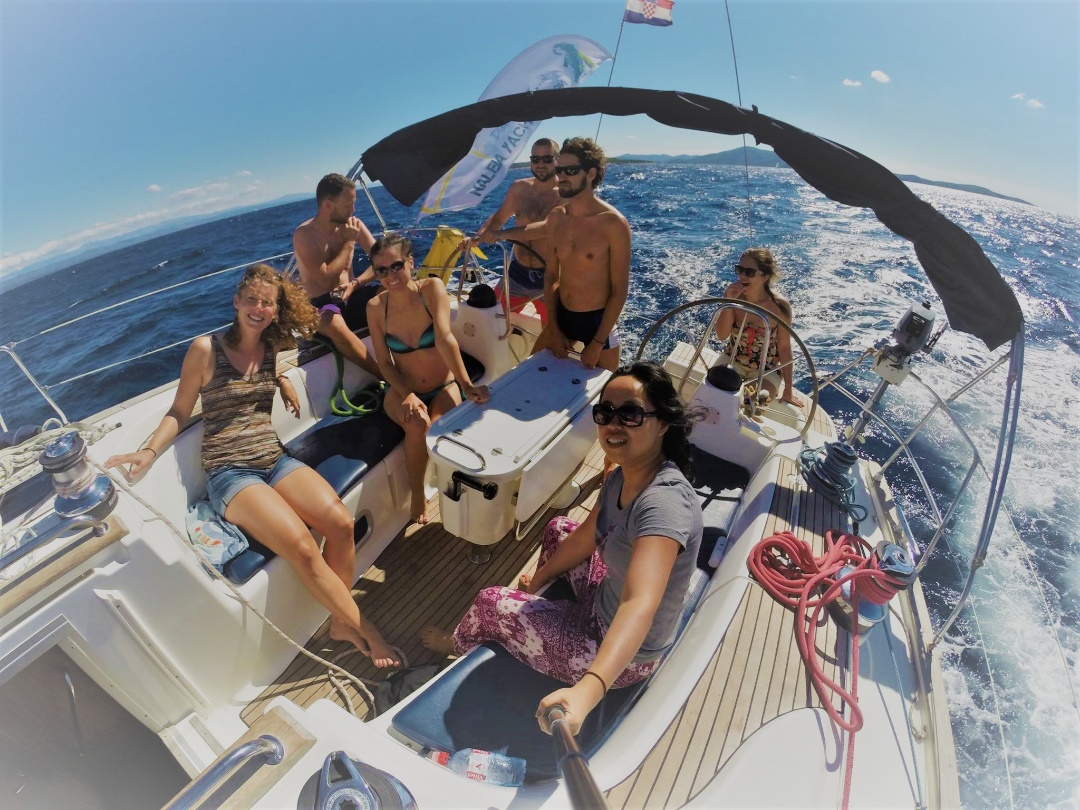
Frequently Asked Questions
What are the immediate steps a boat operator should take after a boating accident?
When a boat operator is involved in a boating accident, their first action should be to ensure the safety of all individuals involved. They should stop their vessel immediately at the scene of the accident. The operator must assess the situation and assist anyone injured or in danger, if it can be done without further endangering their own vessel or passengers. They should also exchange their name, address, and vessel identification information with other parties involved.
How do reporting requirements vary for different states after a boating accident?
Reporting requirements may differ significantly between states. However, most states require boat operators to report accidents involving injuries, fatalities, or property damage exceeding a certain dollar amount. Operators should consult their state's specific guidelines, which can usually be found on the state's boating or wildlife agency website.
What are the time-sensitive actions to be taken after a boating accident?
Boat operators should take several time-sensitive actions immediately after a boating accident. First, they must provide assistance to anyone injured or in danger, if doing so does not pose additional risks. Next, they should exchange contact and vessel information with the other parties involved. Finally, in some cases, operators need to report the accident to the relevant authorities within a specified time frame, typically 24 to 48 hours.
What obligations does a boat operator have in assisting the injured in an accident?
A boat operator has a legal and moral obligation to assist injured persons after an accident, as long as doing so does not seriously endanger their own vessel or passengers. This may include helping injured individuals out of the water, providing first aid if necessary, and contacting emergency services.
What factors determine whether a boating accident must be reported to authorities?
Usually, boating accidents need to be reported to authorities if they involve one or more of the following: fatalities, injuries requiring medical treatment beyond basic first aid, significant property damage, or the disappearance of a person under suspicious circumstances. The specific reporting requirements and deadlines may vary by state, so it is essential for boat operators to be familiar with their local regulations.
How do compliance requirements change with the severity of the boating accident?
Compliance requirements generally become more stringent as the severity of a boating accident increases. For example, a minor accident involving only minor property damage might not need to be reported, whereas an accident resulting in injuries or extensive property damage will likely require a report. Furthermore, accidents involving fatalities or missing persons may necessitate additional investigation by local or federal authorities. In each case, the boat operator should follow their state's specific guidelines for accident reporting and response.
Footnotes
- https://theclarklawoffice.com/first-action-required-of-a-boat-operator-involved-in-boating-accident/ ↩
- https://www.boat-ed.com/paddlesports/paddlesports/studyGuide/What-You-Must-Do-If-Involved-in-an-Accident/11109901_52178/ ↩
- https://www.boat-ed.com/washington/studyGuide/Reporting-an-Accident/10105002_50266/ ↩
Charlie is Editor-in-Chief of Sea Magazine
